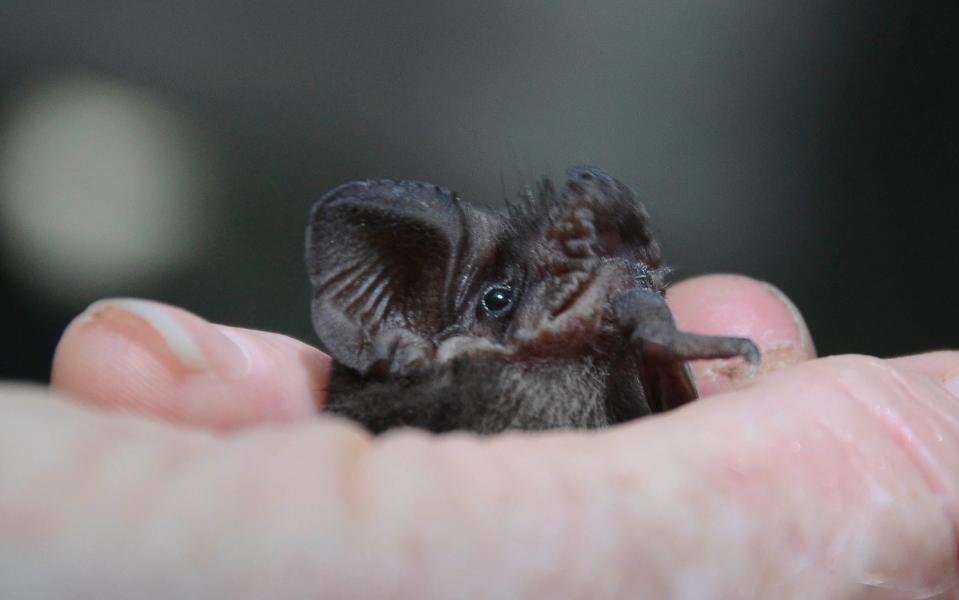Bats, soil health and Indian River Lagoon main topics for garden seminar | Sally Scalera
Would you like to learn the latest information about the efforts being done to help the Indian River Lagoon?
Have you heard about our Brevard County Keystone species, how to improve soil health, and the most important reason to compost?
Are you interested in finding out about bats in your Florida backyard?
And one last question: Would you like to learn about solutions for erosion and runoff?
If you said yes to any or all these questions, hopefully, you don’t have anything planned between 9 a.m. and 1 p.m. Saturday, March 25.
Our annual Florida-Friendly Landscaping Seminar will be at the Eau Gallie Civic Center that morning. There will be vendors selling native plants and gardening supplies, along with educational booths. The vendors will be setting up early for those who are early risers.
This year, the seminar will begin with Kathy Hill of the Indian River Lagoon National Estuary Program from 9:15 to 10 a.m. She will give us an update on the efforts to help the Indian River Lagoon and will discuss the various projects that have been completed, those in the works, and the ones planned. Come hear the most recent update on the IRL and if you have any questions or suggestions, participate in the question-and-answer session at the end.
I will present the next session, “Keystone species, soil and a touch of compost”, from 10 to 10:45 a.m.
I will discuss Brevard County’s top keystone species that residents will want to plant in their landscapes to support our migratory birds. Keystone species are the top 5% of our native species that support the most insects that provide food for migratory birds and other wildlife. If you are thinking of adding some new plants to your yard, come learn about these plants to see which ones will work for you.

More:What is a Florida-Friendly Landscape? Sally Scalera
More:Here's what to do in your Brevard yard and garden in February | Sally Scalera
Of course, I will also cover my favorite topic, soil health for producing healthy plants and nutritious food. The soil food web is crucial when gardening, so come learn how you can establish the soil food web around the roots of your plants.
Plants produce root exudates of various simple and complex sugars and other carbohydrates, in the hope of attracting beneficial bacteria and fungi. As the bacteria and fungi consume the root exudates, their populations grow. The beneficial fungi, mycorrhizae, form symbiotic relationships with plants, receiving carbohydrates from the root exudates and in return, providing the plant with nutrients, including water.
Some plants, like corn, form symbiotic relationships with many species of mycorrhizae. Once the bacterial and fungal base of the SFW populations gets large enough, the predatory protozoa and nematodes will arrive to complete the nutrient cycling process in the soil.
There are many types of beneficial nematodes, though they are overshadowed by the infamous root-knot nematode or other root-feeding types. Predatory nematodes are categorized by what they eat, which are either bacteria, fungi or nematodes. The nematodes that consume other nematodes prefer to eat the ones that feed on roots.
Protozoa come in two types: amoebae and flagellates. As the predators feed on their prey, they are helping to cycle the nutrients in the prey’s body and make the nutrients and water available for the plants to absorb. This is how nature “fertilizes” plants. Just small amounts, when needed, with no waste or leaching. Both the efficient nutrient cycling and the organic matter’s nutrient and water-holding capacity help to protect our water quality.
I will also touch on compost and explain the main reason behind composting − it may not be what you are thinking − and how to accomplish that goal.
From 11:15 a.m. to noon, Shari Blisset-Clark of the Florida Bat Conservancy will enlighten you with the fact that bats are the primary predators of night-flying insects, including the bugs that bug you.
This program introduces the species of bats that hunt in Florida's yards and neighborhoods every night. Learn fascinating bat facts and discover the environmental and economic value of these important mammals. The discussion will include simple strategies that anyone can use to encourage bat activity in their yard. Live Florida bats will be shown after the presentation.
The last presentation will be from 12:15 to 1 p.m. by Nichole Perna of Go Native. Her talk will include solutions for erosion and runoff that occurs along the Indian River Lagoon, and storm water retention ponds. Nicole will share the native plants that will hold the soil in place to protect your property and attract wildlife and pollinators.
At the conclusion of the four talks, door prizes will be raffled off to everyone who is still in the room. On the way out, everyone who turns in a completed survey will also receive a goody bag that contains a hose nozzle, a pair of gardening gloves and other gardening goodies. The surveys are important because we use them to determine the topics presented at the next year’s seminar.
Free tickets can be obtained at fflseminar2023.eventbrite.com, though registration is not mandatory.
So, if you’re free March 25, come join us for a fun and educational event.
Sally Scalera is an urban horticulture agent and master gardener coordinator for the University of Florida’s Institute of Food and Agriculture Sciences. Email her at sasc@ufl.edu.
This article originally appeared on Florida Today: Florida-Friendly Landscaping Seminar set for March in Eau Gallie

